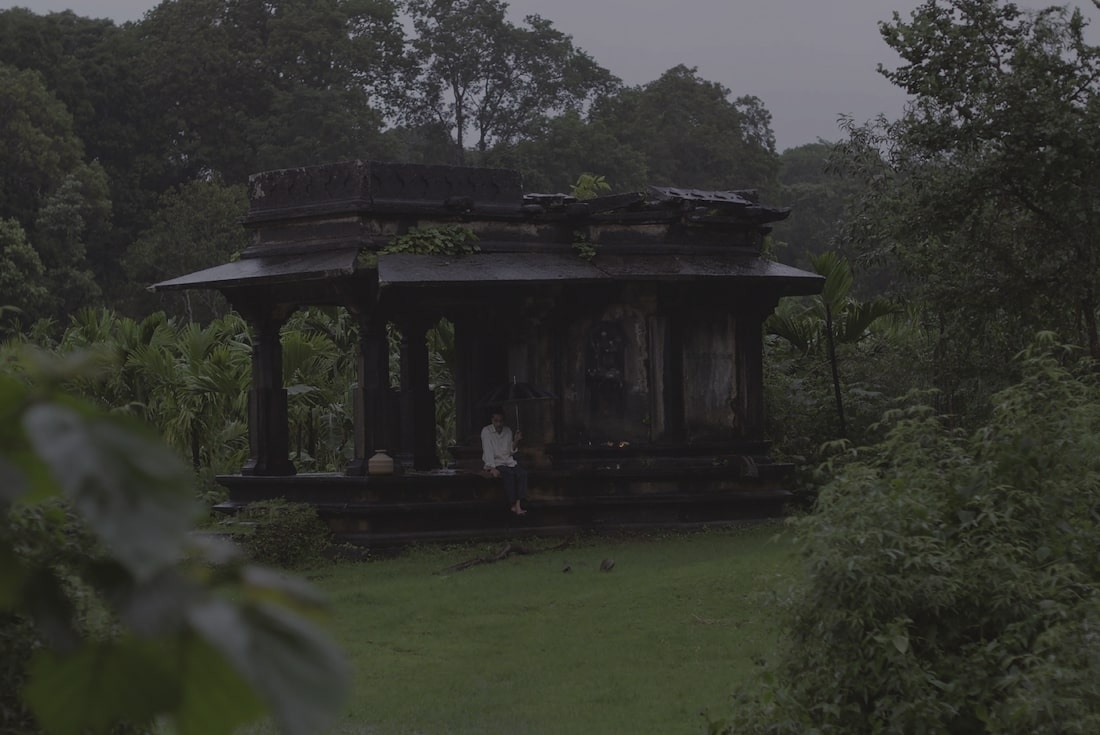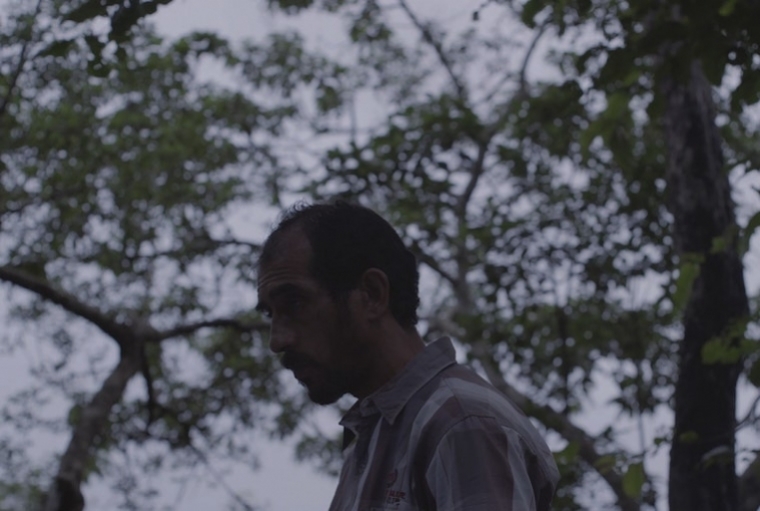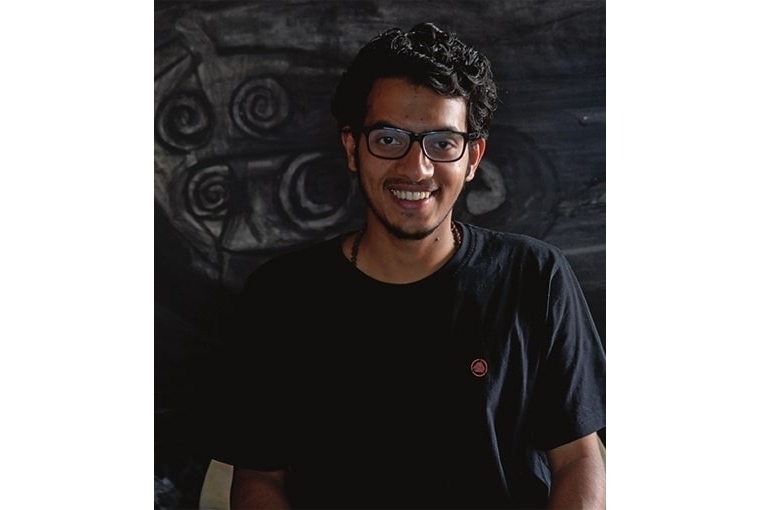

THE FILMMAKER
Natesh Hegde is a filmmaker, extremely close to his roots. I say that because he still lives in Kottalli, in Karnataka, the small village in which he was born and home to only ten families. For even better geographical understanding he tells me, that it is located in the Western Ghats of Karnataka. When I began my interview, asking him about his childhood he tells me it is actually difficult to explain how and where he grew up. ‘It’s difficult for me to explain that. I cannot differentiate childhood as an aspect of time. The people who I met during those formative years have shaped my thought process. I do not know how different it is. On top of that, I am still twenty five years old. It was very natural. But, my friends living in the city exclaim at me whenever I tell stories of my village. So, I guess it was be different,’ he tells me.
Academically Natesh never studied filmmaking but writing was his escape from reality. He finished his graduation in a town nearby his village called Sirsi, graduated in Science and later pursued Journalism at Karnataka University, Dharwad.
Natesh recalls that growing up with a lot of questions. ‘I questioned reality itself. I used my imagination and writing to escape from reality. Everything had a question mark. This also contributed to me becoming a filmmaker,’ he adds. It was then that he turned into a self-taught filmmaker. ‘I plunged into cinema. My first short film, Kurli made it to several national and international film festivals. I’ve written the script for more short films and am in the process of lending final touches,’ he says. Natesh hopes to make films about people he finds around his village, from where his thought process stems and the genesis of his stories lie. ‘The life of villagers is usually never represented in films. I want to bring to the fore aspects people have not seen before.’

THE FILMS
Natesh’s first short film, Kurli has travelled extensively to festivals. His debut feature Pedro, recently got selected at FilmBazaar and is now in its post production stage. All his films, the shorts he has made in the past and his debut feature are stories that are fresh yet rustic, inspired from people in his village. Pedro, that will be releasing this year is about a part-time electrician and what he does to make ends meet. ‘A city dweller will not understand what a villager goes through, but I can narrate the story well because I am witness to such incidents,’ says Natesh. He is convinced that there is a market for small films. ‘A good story can be narrated well with a limited budget. There is an audience. People would much rather sit in the comfort of their homes and watch films online than go to the theatre. Platforms like Netflix are receptive to off- beat content,’ he says.
The story of Pedro originated from his father’s and his experiences. He played the titular character. ‘You may say that it is similar to that of my earlier shorts, Kurli and Distant. It is so entwined with the truth. So it is quite difficult to tell how much is real and what are real events in these works. It is like this phenomenon called pathetic fallacy where the surrounding nature collides with the man’s emotion. In Pedro, the streets of Kottalli, trees and the stagnant river get life. Or, it is better to say that I got my story through them.’

THE PROCESS
‘Rishab Shetty is the producer of Pedro. He is already a household name in Karnataka through his directorial and acting ventures. He is the main reason for this film to happen as it was written. Nothing was modified. Mostly he got moved by the story and the humane approach we took. But for Kurli, I did everything on my own including the edit and sound design of the film. I had to learn it first before doing. I made that film to tell the story of the society I belonged to.
Along with telling the story, the process of making Kurli made me aware of the fact that a film has more possibilities as a medium.’
This article was initially published in our June issue of 2020.
Text Hansika Lohani Mehtani